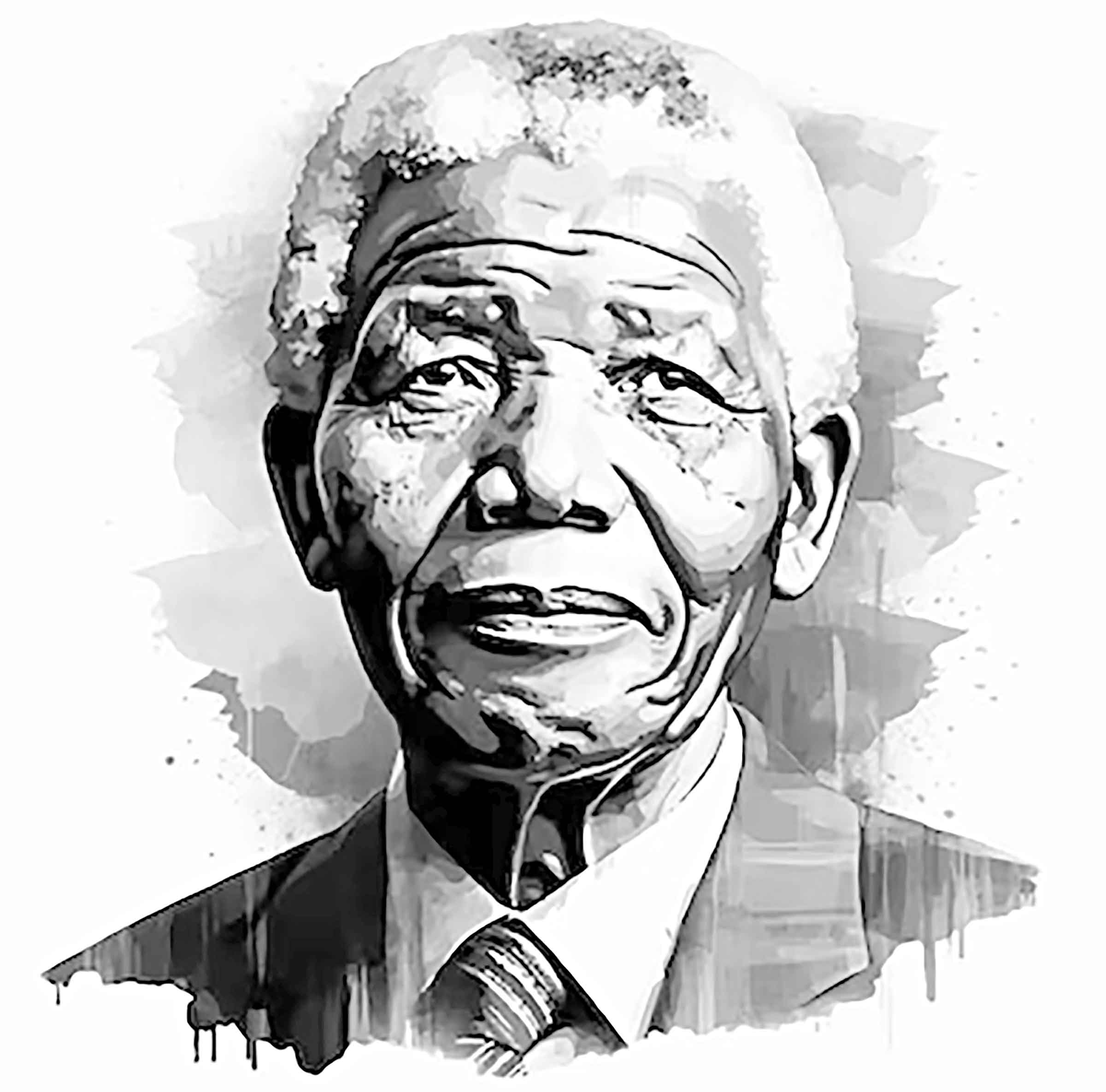
B. Answer the following questions.
a) What, according to text, is apartheid?
b) Mention three great achievements in Mandela’s life.
c) Why did Mandela want to break the manacles of apartheid?
d) What does the expression ‘I have fought it all during my life; I will fight it now, and I will do so until the end of my days’ mean?
e) Do you find any similarity between Mandela and Sheikh Mujibur Rahman? If any, mention.
Answer :
a) According to text apartheid means the racial segregation prevailing in South Africa. It means the domination of the white over the black people of South Africa. Nelson Mandela is famous for breaking the manacles of apartheid from South Africa.
b) Though Mandela had to suffer a lot, his achievements were noteworthy. His first achievement was to break the manacles of apartheid. His second achievement was to become the first black president of South Africa. His third achievement was to win the Nobel Prize.
c) Mandela wanted to break the manacles of apartheid because this vary evil practice was responsible for the racial bigotry in South Africa. The manacles of apartheid confined the black people of South Africa inside the four walls of oppression.
d) This very statement is the expression of Mandela’s firm resolution to fight against racial bigotry. Mandela had an absolute abhorrence towards race discrimination. He fought against it and was readz to fight against till his last breath.
e) I see some similarities between Nelson Mandela and Sheikh Mujibur Rahman who fought for their respective countries. Mandela fought against the white rulers of his country. In the same way, Sheikh Mujibur Rahman fought against the Pakistani rulers. Then both of them were undisputable Presidents in their respective countries. Finally, both of them were famous leaders.
11. Read the following text and answer the questions A and B.
Mandela went on to play a prominent role on the world stage as an advocate of human dignity in the face of challenges ranging from political repression to AIDS. He formally left public life in June 2004 before his 86th birthday, telling his adoring countrymen: ‘Don’t call me. I’ll call you.’ But he remained one of the world’s most revered public figures, combining celebrity sparkle with an unwavering message of freedom, respect and human rights. ‘He is at the epicenter of our time, ours in South Africa, and yours, wherever you are,’ Nadine Gordimer, the South African writer and Nobel Laureate for literature, once remarked. The years Mandela spent behind bars made him the world’s most celebrated political prisoner and a leader of mythic stature for millions of black South Africans and other oppressed people far beyond his country’s borders. Charged with capital offences in the 1963 Rivonia Trial, his statement from the dock was his political testimony.
A. Choose the correct answer from the alternatives.
(a) What could be the closest meaning for ‘mythic stature’ in text?
(i) Legendary figure (ii) Hulk giant
(iii) Fabulous hero (iv) Infamous
Answer : (i) Legendary figure
(b) The word ‘revered’ in the text refers to —
(i) well-regarded (ii) depraved
(iii) tarnished (iv) venerated
Answer : (i) well-regarded
(c) ‘Repression’ in the text could be replaced by —.
(i) suppression (ii) botheration
(iii) modification (iv) glorification
Answer : (i) suppression
(d) The range of actions of Mandela encompasses —.
(i) from cultural aggression to AIDS
(ii) From social word to cultural repression
(iii) from national to international problems
(iv) from political suppression to AIDS
Answer : (iv) from political suppression to AIDS
(e) The best synonym for ‘sparkle’ is —
(i) gloomy (ii) shine
(iii) shimmering (iv) insipid
Answer : (ii) shine
B. Answer the following questions.
a) How do you differentiate Mandela from other political leaders?
b) How do you explain Mandela’s lifelong struggle for humanity?
c) Why did Nadine Gordimer remark ‘He (Mandela) is at the epicenter of our time, ours in South Africa, and yours, wherever you are?’
d) What does the expression ‘Don’t call me, I’ll call you’ mean?
e) Do you find any leadership quality in Mandela? If any, mention.
Answer :
a) Mandela was different from other political leaders. He had to pass a longer time in jail than almost all other leaders. He was firm to achieve his goals. He struggled all through his life.
b) Mandela is the synonym of struggle. Throughout his life he struggled to establish the rights of the black people of South Africa.
c) Nadine Gordimer’s remark indicates that he (Mandela) is a hero not only for the South Africans but also for the people of the whole globe. Through Nelson Mandela struggled for the black people of his country (South Africa), it influenced the other oppressed people far beyond his country’s borders. Thus, he became an icon of peace and reconciliation who came to embodz the struggle for justice around the world.
d) The statement was delivered by Mandela when he left his public life at the age of 86. With this expression he meant that he was not leaving them totally. If it was needed, he would come forward for his black people.
e) Yes, I find a number of leadership qualities in Mandela. Firstly, he had the mentality to sacrifice himself for his beloved black people. The second quality is his firmness of character.
n cieZ©x Ask AvMvgx msL¨vq